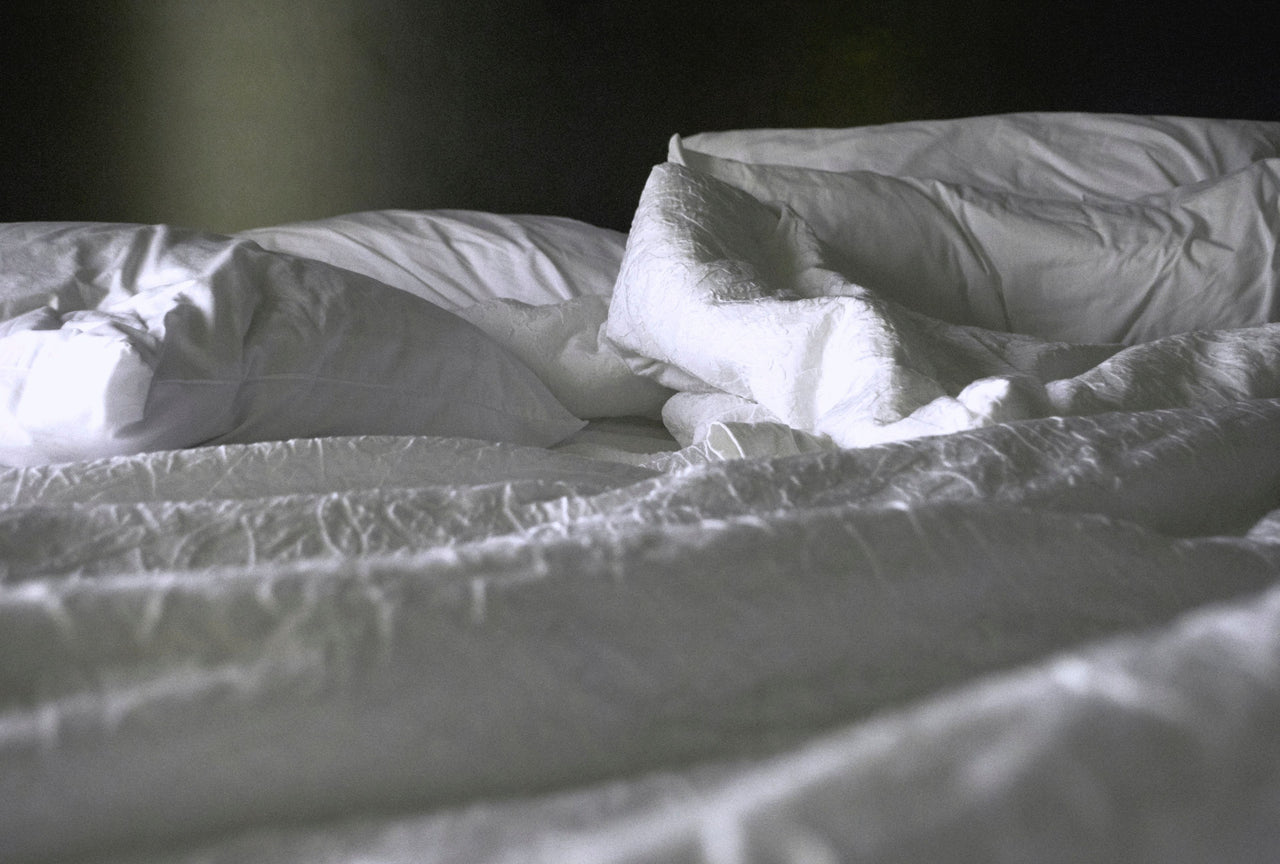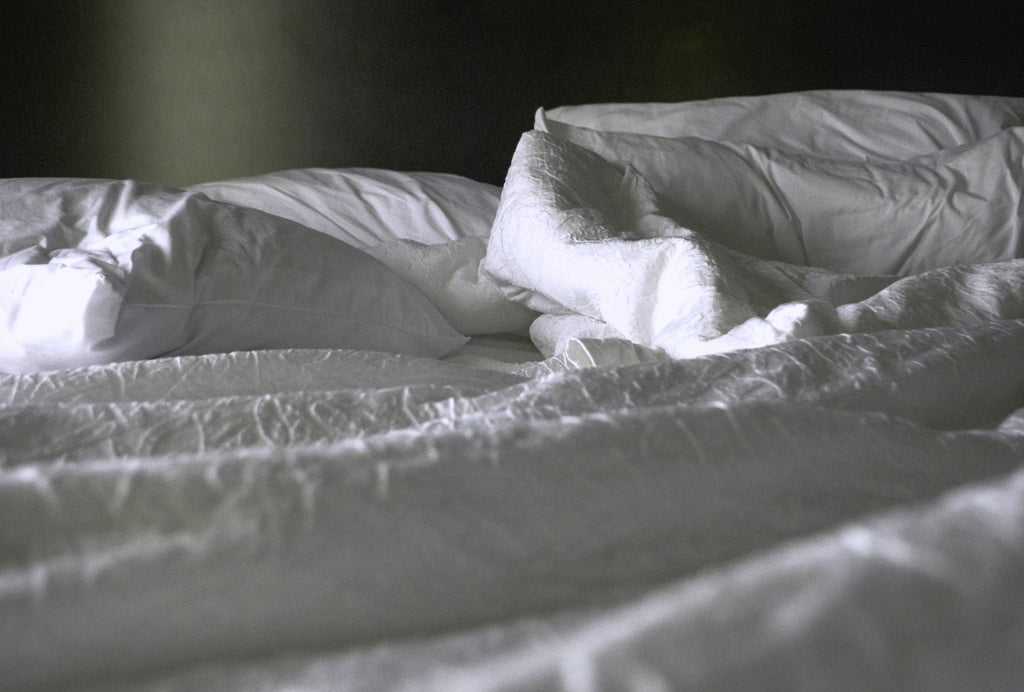I Can't Sleep: 5 Sleep Tips To Help You Fall Asleep and Stay Asleep


Have you ever been so tired that you fall into bed, but your eyes stay wide open, and you can’t fall asleep?
You're not the only one. It happens to plenty of people. More than 30% of the population suffers from insomnia, and over half of all Americans lose sleep over stress or anxiety.
In good news, that means you aren't alone if you keep having trouble falling asleep. There are plenty of tips and tricks that can help you to find your zone and fall asleep and stay asleep more easily.
1. Don't Look At Your Phone
Although our phones play a significant role in our everyday life these days, it's essential to avoid looking at your screen right before bed. When you lay in your bed, you need your body to relax so you can sleep. But if you are looking at your phone, you are stimulating your mind.
In addition to that stimulation, your smartphone emits a blue-wavelength light, which inhibits our body's ability to produce melatonin, a hormone that the body produces naturally to help us fall asleep and stay asleep. So be sure to turn your phone off and put it away before you crawl into bed to get a good night's sleep.
2. Keep Your Room Cool
The temperature of your room also plays a significant role in your ability to fall stay asleep. Generally speaking, the best temperature for your bedroom during the night is between 60 and 67 degrees Fahrenheit. It's because our body temperature naturally rises and falls during 24 hours; when we sleep, our body temperature begins to drop. Sleeping in a cold room will help to speed up that process for your body, which allows you to calm down more easily.
Of course, your room can also be too cold. Whether your room is too hot or too cold, your body has to expend more energy in trying to regulate its temperature. That's when you end up tossing and turning. A cold bedroom helps you fall asleep faster, and sleep better throughout the night.
3. Don't Stress Yourself
Often when you go to bed, you will find that your mind begins to run through things that are causing you stress. While it's a natural inclination, it's also the last thing you should be doing as you are about to escape into snoozeville. It can be difficult to prevent because the time before bed is typically the one time of the day where you are alone with your thoughts. And yet, too often, these thoughts are caused by stress in your life, and then you begin to think of all sorts of negative scenarios attached to your fears.
Fortunately, you can work against it. When you close your eyes and find your mind beginning to race to stressful thoughts, actually say no out loud. Then, make a conscious effort to think of something else. That might be picturing a favorite painting, or thinking of a happy moment in either your day or your life. Let those thoughts fill your mind. By doing so, you will push out any negative thoughts, which helps your mind relax and allows you to fall asleep more easily.
4. Don't Look at The Clock
When you can't sleep, you may find yourself staring at your clock. The more you wish to fall asleep, the more you try to gauge just how much sleep you're losing. You're quite literally tossing and turning the minutes and hours of the night away. So here's a novel idea: make a conscious effort to not look at your clock. Doing so can cause you to stress that, like the thoughts mentioned above, prevents you from going to sleep.
Anyone who has struggled to sleep can probably attest to staring at the clock and then thinking about how much time they have left until they have to get up. It causes your heart rate to increase, which means it will take you much longer to calm yourself down and get to sleep. So if you're trying to make it quick, avoid looking at the clock for even a bit.
5. Make Sure your Pillow and Bed Are Comfortable
Items like your pillow and your bed play a massive role in your ability to sleep for long and comfortable hours. If your pillow isn't providing you with enough support, you may find that you are sore and even more tired when you wake up. That's because the key to good night's sleep is deep sleep.
If you are a back sleeper, you should try to sleep on your side. Side sleeping is a better position for your body, as it takes pressure off your spine. Of course, changing your sleeping position can be difficult, so it is vital that you have a bed and pillow that provide your body with enough support. For many people, the tossing and turning lead to the fact that they can't find a comfortable position. Especially as you age, your back, hips, and neck will hurt if you lay certain ways.
To solve this problem, it is a good idea to take a look at your pillow and mattress. Look for a replacement if they are not providing you with enough support, or you find that they are indented and have lost their shape from the weight of your body laying on them night after night.
Of course, these are only a few of many helpful tips to get you to a better night's sleep. Anyone who struggles to fall asleep and stay asleep knows that it can impact your daily life. A bad night's sleep leads to exhaustion at work, along with a lack of energy when enjoying time with your family and friends.
Other tips can include establishing a nighttime routine, which helps to mentally and physically prepare your body for bed every night can help you fall asleep. If none of these tips work, consider leaving your room for 10 minutes and sit or lay somewhere else, without any distractions. Once you get back to your bed, your body will be more prepared for sleep. To learn more about how we can help you, contact us.



